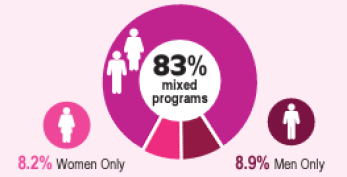

Applying interventions designed to reduce and manage the symptoms of substance use disorders.
New research published in the journal Biological Psychiartry points to a novel way for the treatment of alcoholism. This would look to reduce motivation for drinking instead of altering the effects of alcohol, itself. Indeed, the study...
The over-prescription of opioids is a significant public health issue in the United States. For example, opioids are often prescribed for minor injuries unnecessarily. This, in turn, increases the risk of addiction.
New research...
A cell in the Alcohol Treatment Matrix. In an extreme form, the title poses the dilemma for alcohol treatment staff who may also be (seen as) working for authorities whose main role is to control or punish the ‘client’ or who may be...
A new American Cancer Society study published in the journal Tobacco Control suggests that regularly receiving personalised emails with tips for quitting amongst other information could be as effective at reducing the rate of smoking as...
Thirteen years have passed since the US Food and Drug Administration (FDA) last approved a new medication to help the nation’s millions of people with alcohol use disorder (AUD) stop or moderate their drinking.
Only 3 such formulations...
Background
Screening and brief interventions for alcohol are an effective public health measure to tackle alcohol-related harm, however relatively few countries across the European Union (EU) have implemented them widely. This may be due...
New research published in the Journal of Neural Transmission highlights a number of potential adverse side-effects from using the stimulant drug Ritalin without a prescription. Ritalin (Methylphenidate) is medically used to treat Attention...
The final row of the Alcohol Treatment Matrix enters the domain of treatment organised not primarily for the patient, but to safeguard the wider community, encountering what seems a core contradiction depicted on the cover of WHO guidance...
A free online training course from the Centers for Disease Control and Prevention (CDC) is now available.
The course addresses the CDC recommendations with respect to the prescription of opioids for chronic pain as well as their...
This report brings together information on people receiving specialist interventions for drug problems and for problem drinking in England, other than patients receiving this treatment in prison.
Analysed textually and pictorially...
What is already known about this topic?
The United States has experienced a sharp increase in hepatitis C virus (HCV) incidence that can be attributed to injection drug use. Some states have used public health laws and...
A recently published White Paper by the Addiction Technology Transfer Centre Newtork (ATTC) starts with the premise that the substance use disorder (SUD) prevention, treatment and recovery workforce is currently undergoing an evolution as a...
A new study published in the Journal of Addiction Medicine suggests that a tele-psychiatric approach which uses video-link technology in combination with medicinal treatment in the form of buprenorphine could be as effective as the usual...
The Canadian Centre on Substance Abuse (CCSA) has released a new report detailing possible effects of psychoactive prescription drugs while driving. The study was carried out with the effort to inform policy decisions aimed at reducing the...
The European Facility Survey Questionnaire (EFSQ) can be used for data collection in any country by those looking to investigate facilities that provide interventions for drug users.
Its aim is to collect information on facilities in...
New Research published in the Journal of Clinical Psychiatry has found that people with intermittent explosive disorder (IED) – a condition with a significant genetic component characterised by regular outbursts of aggression, whether...
The Talking Route to Recovery
Time to consolidate the lessons of last five instalments of the online course on alcohol treatment research. Every treatment involves direct or indirect human interaction, but this row is about therapies in...
Psychosocial interventions are psychological or social interventions used to tackle issues related to substance abuse and behavioural addictions. They can be employed to identify and treat problems, as well as to assist with user...
New research published in The Lancet Public Health suggests that global smoking rates have decreased by 2.5% following the introduction of the global tobacco control treaty. The treaty obligates the 180 countries committed to it to...
New research by scientists at The Scripps Research Institute (TSRI) may lead to the development of personalised treatments for alcohol dependence. The study evaluated how people’s responses in the brain differ to various therapeutic...
Share the Knowledge: ISSUP members can post in the Knowledge Share – Sign in or become a member